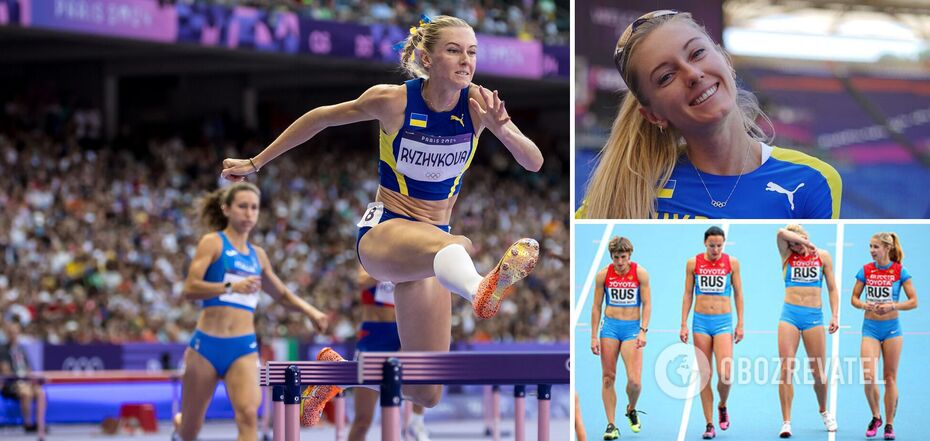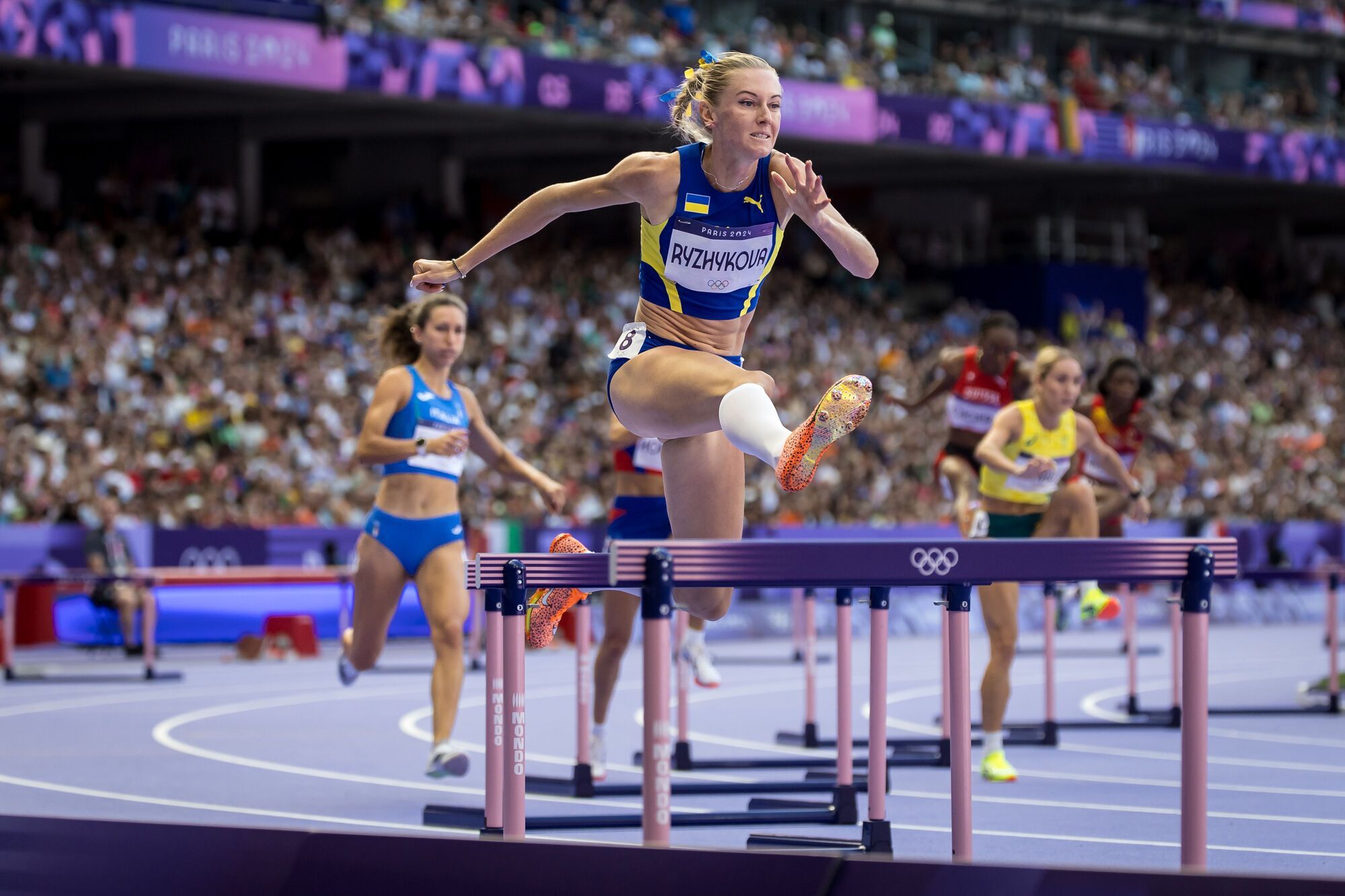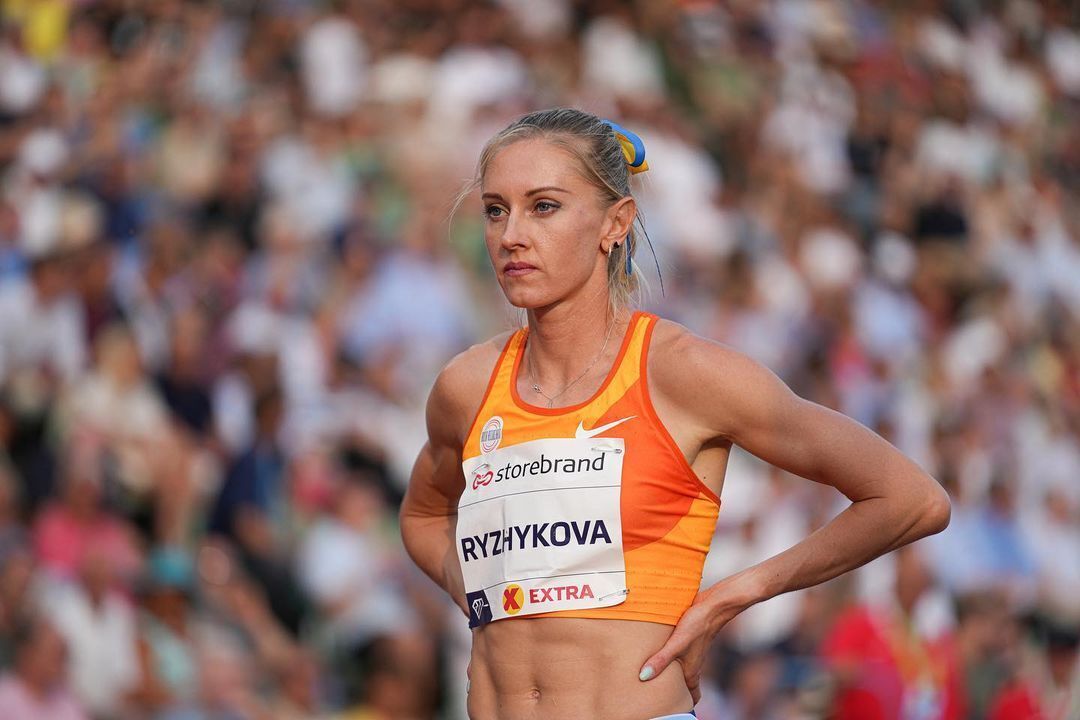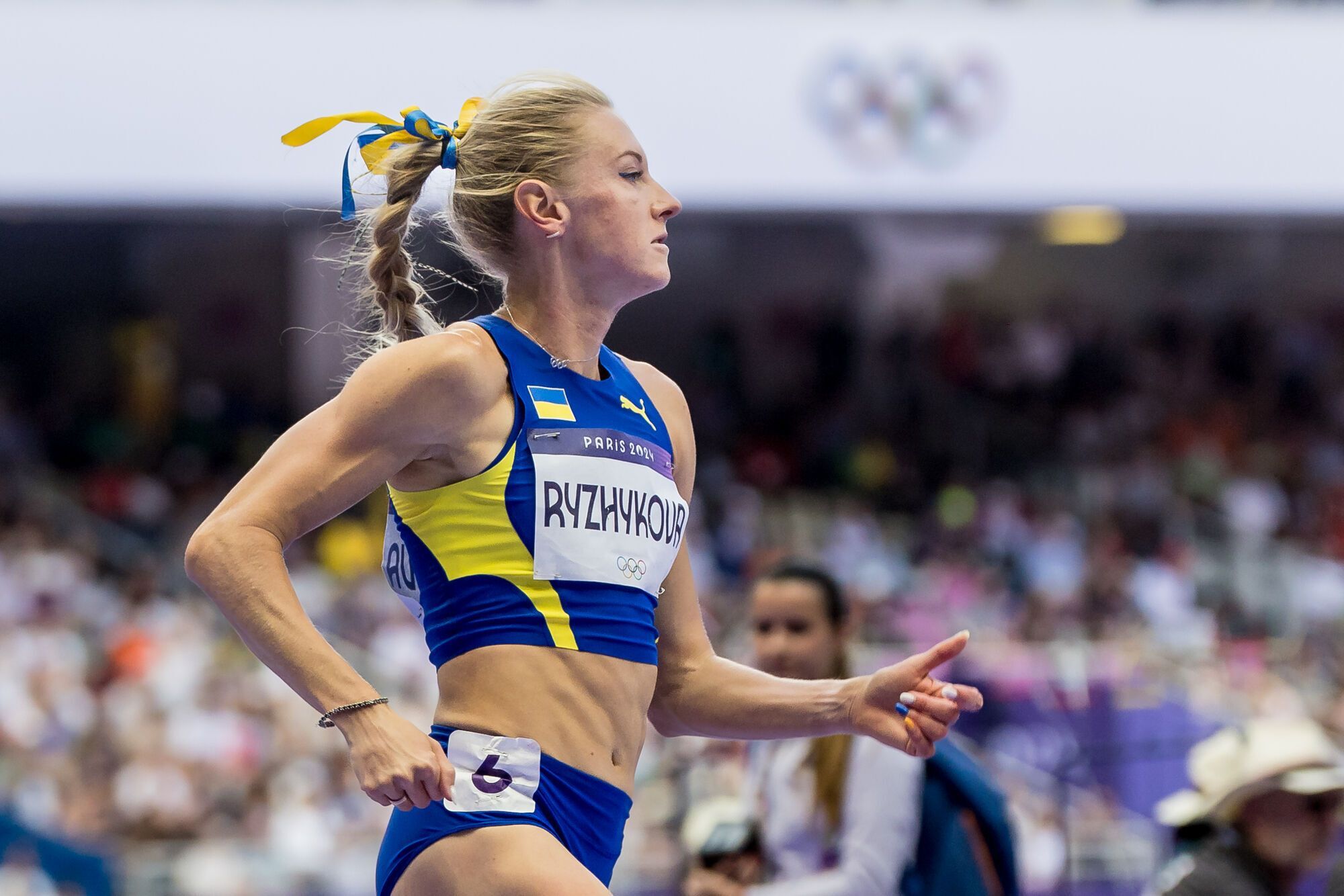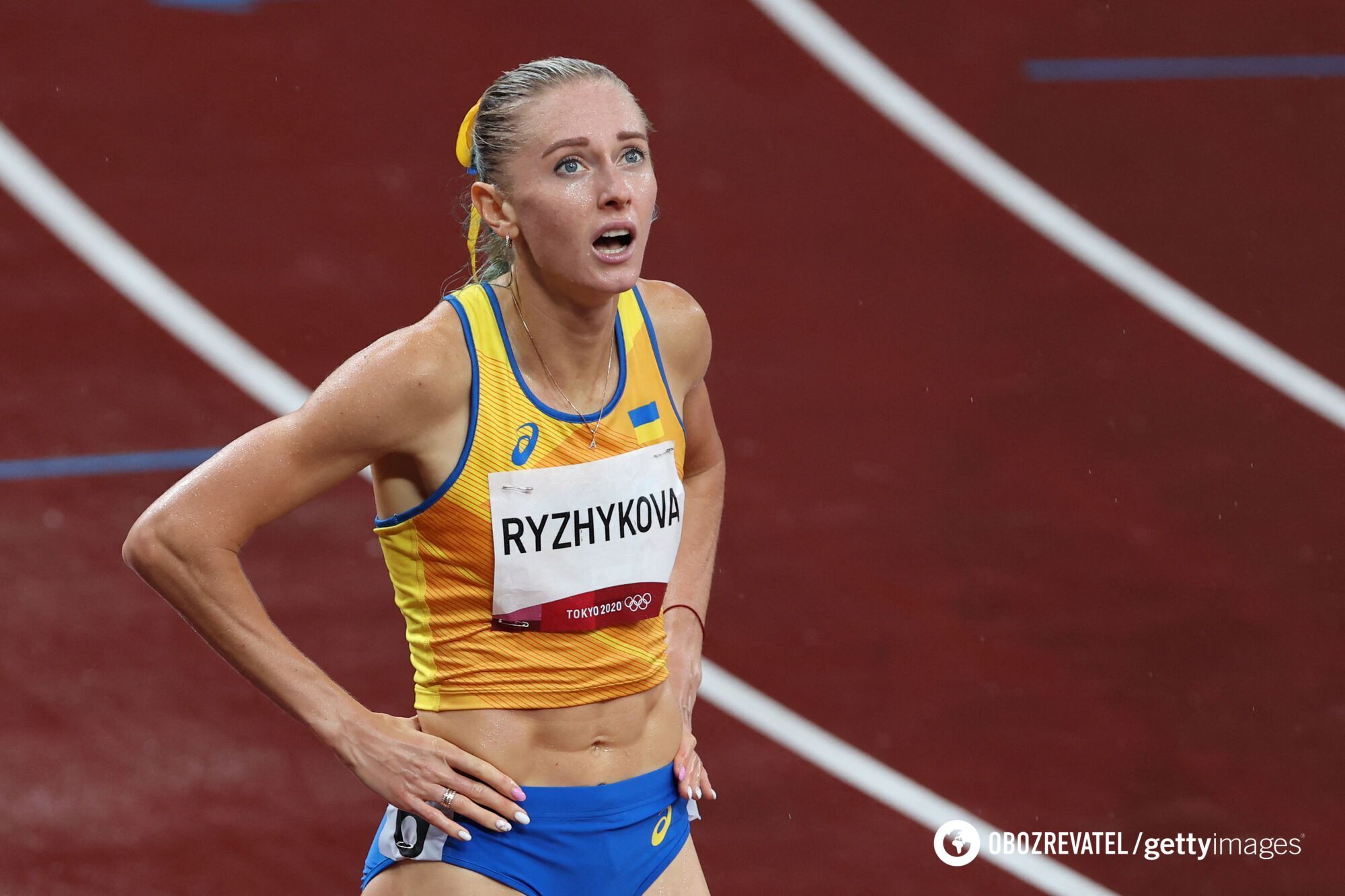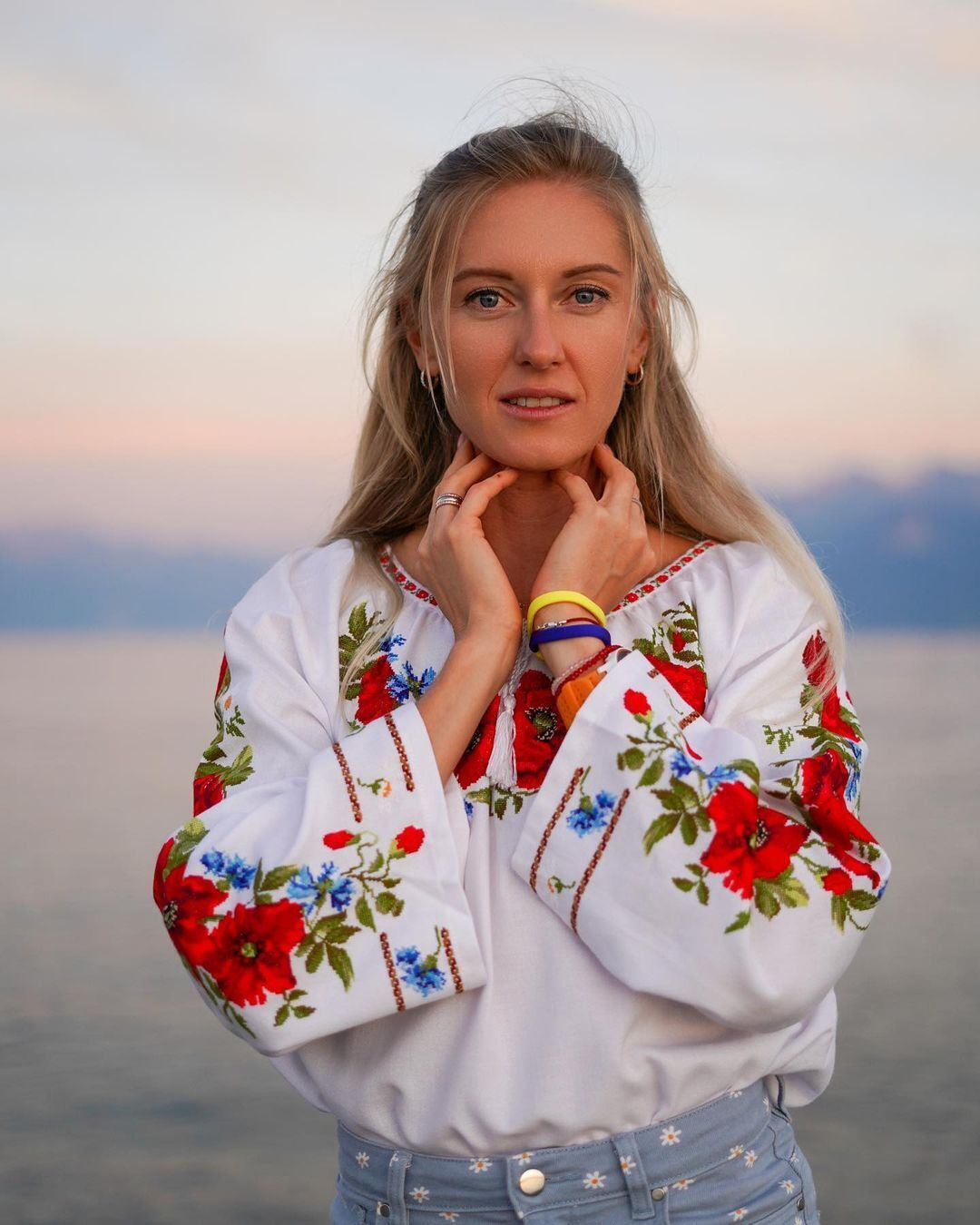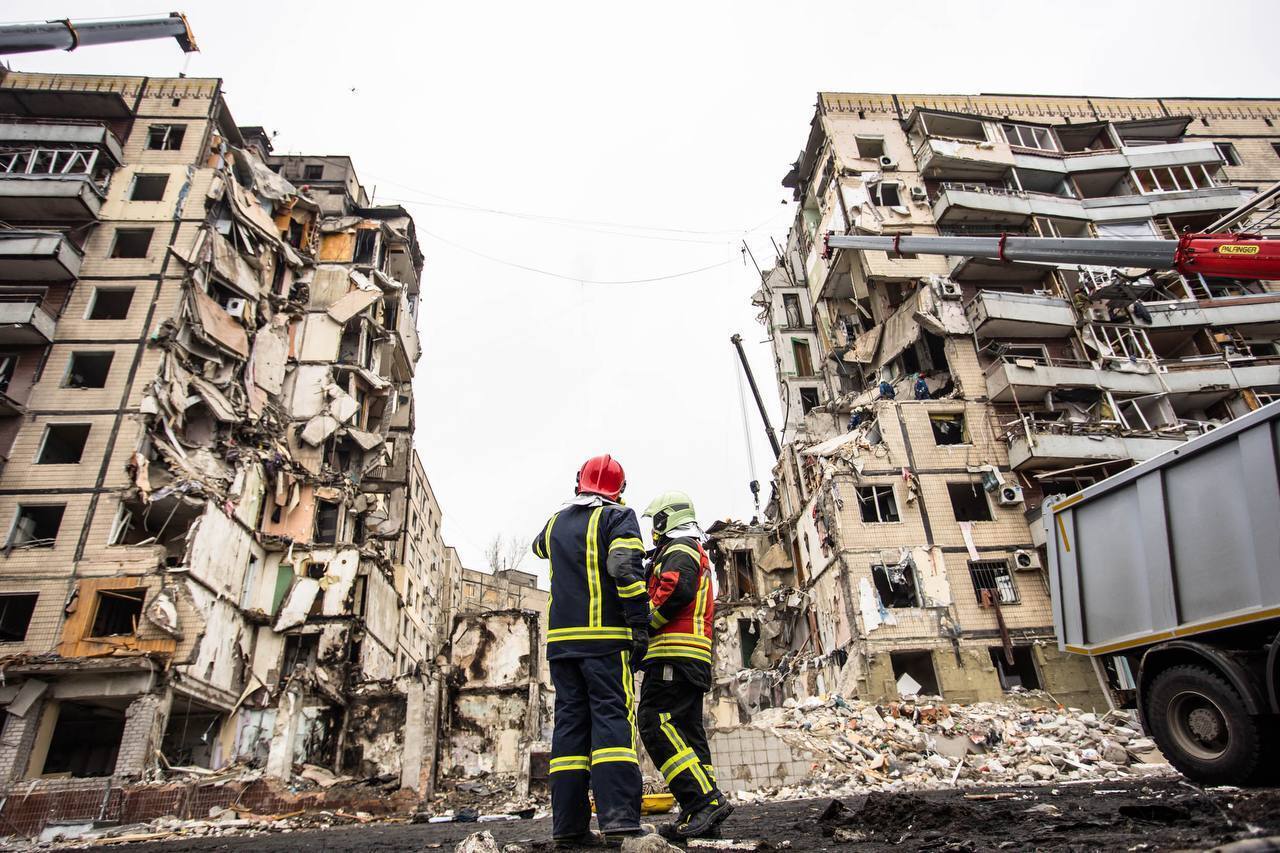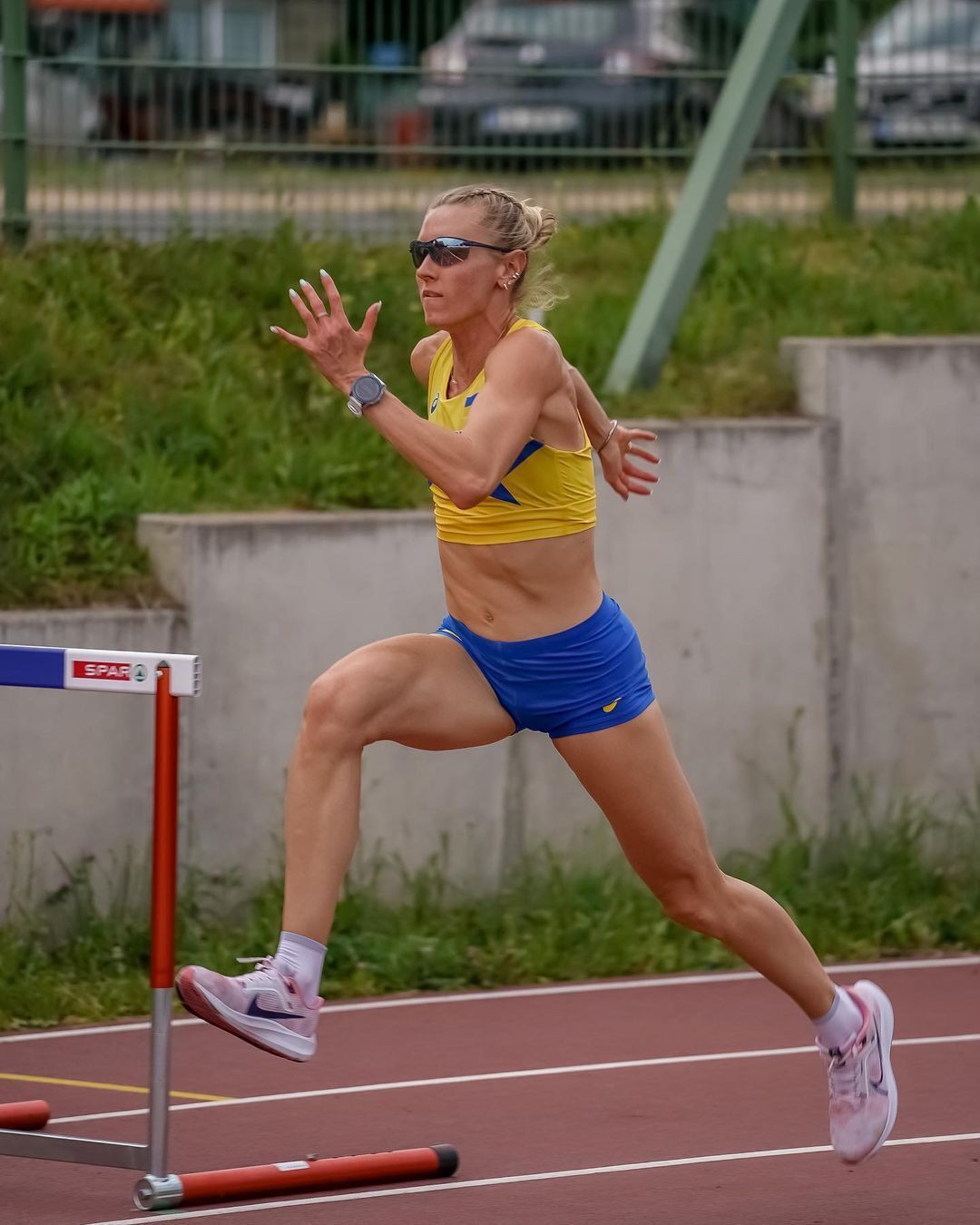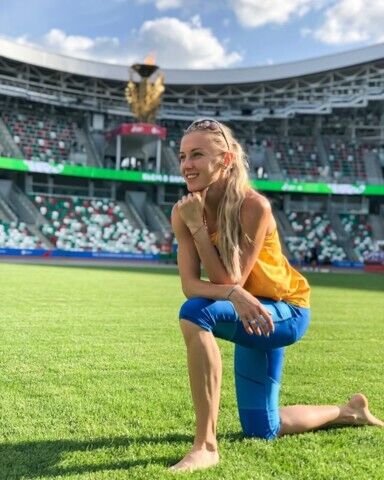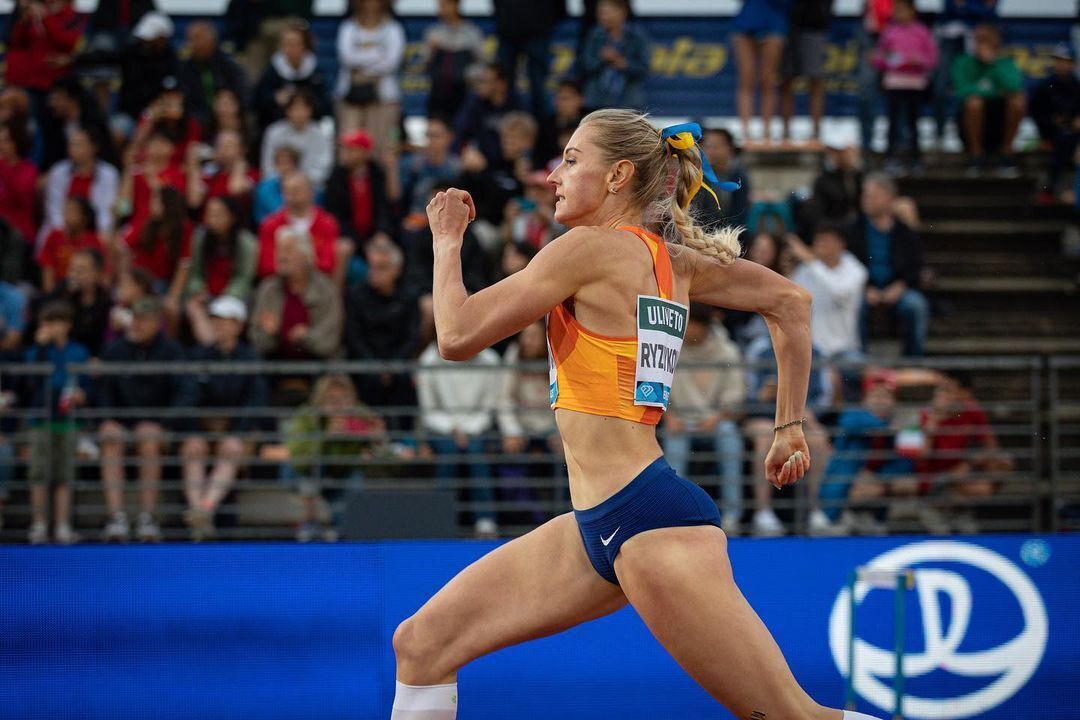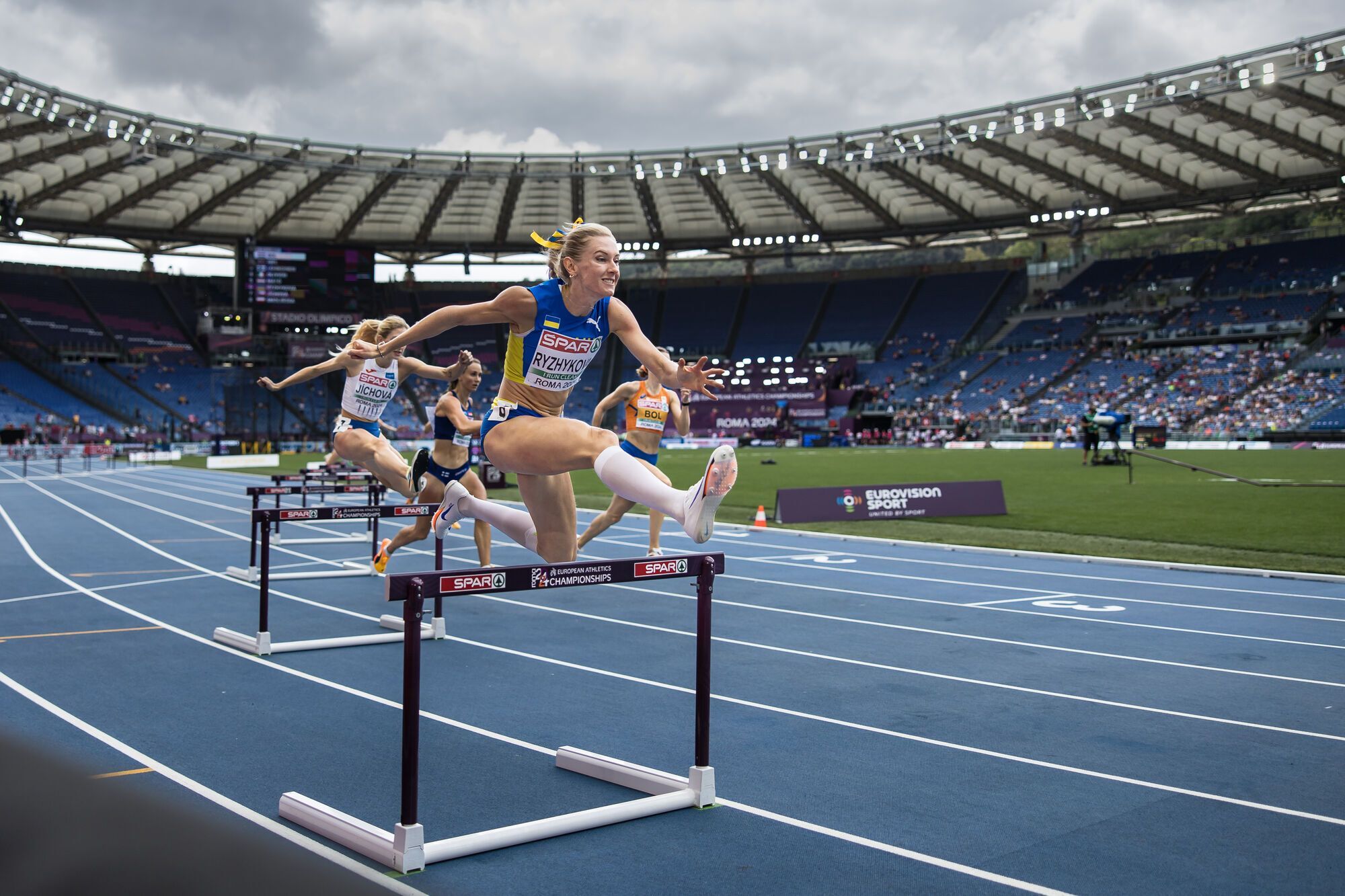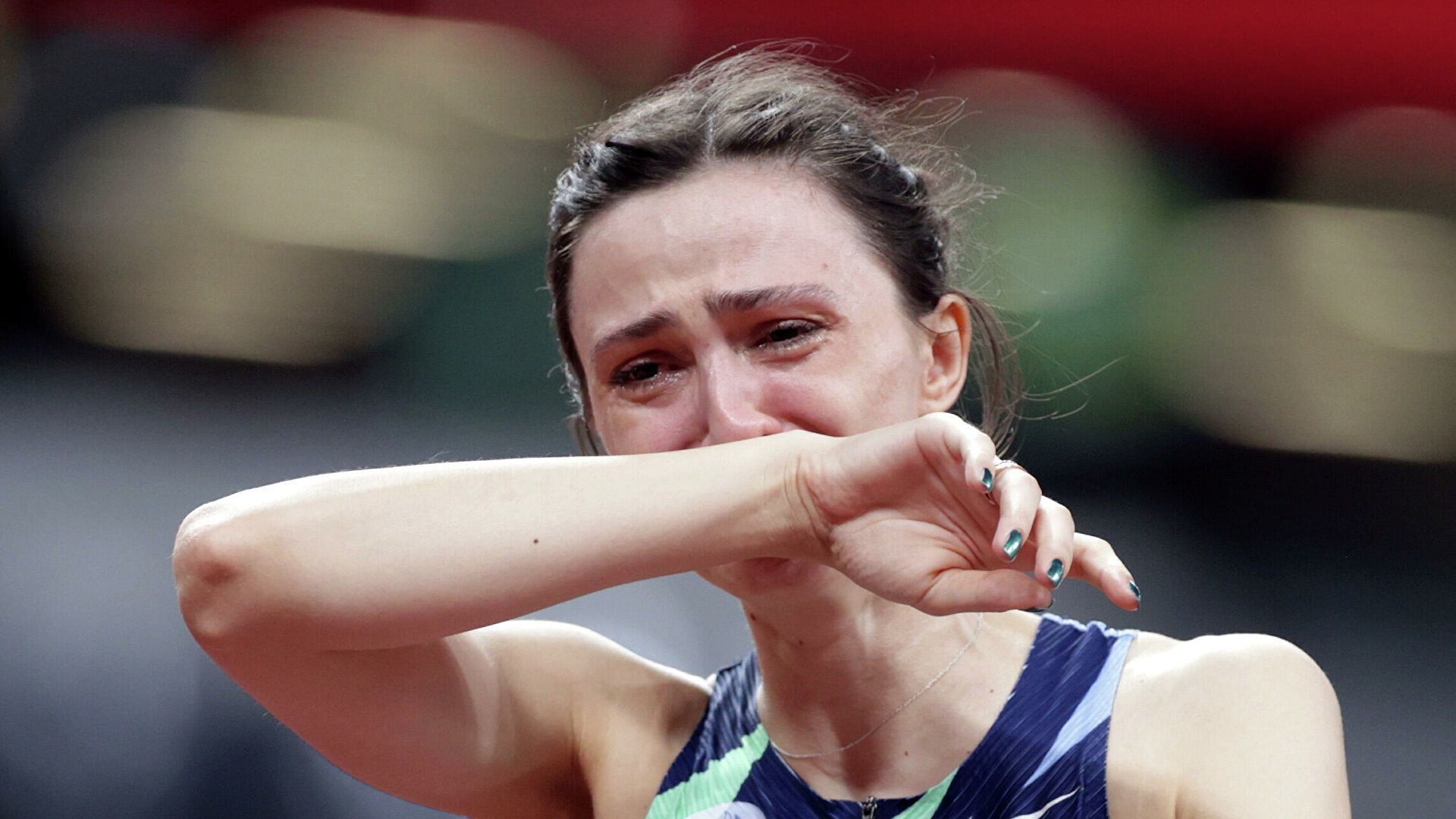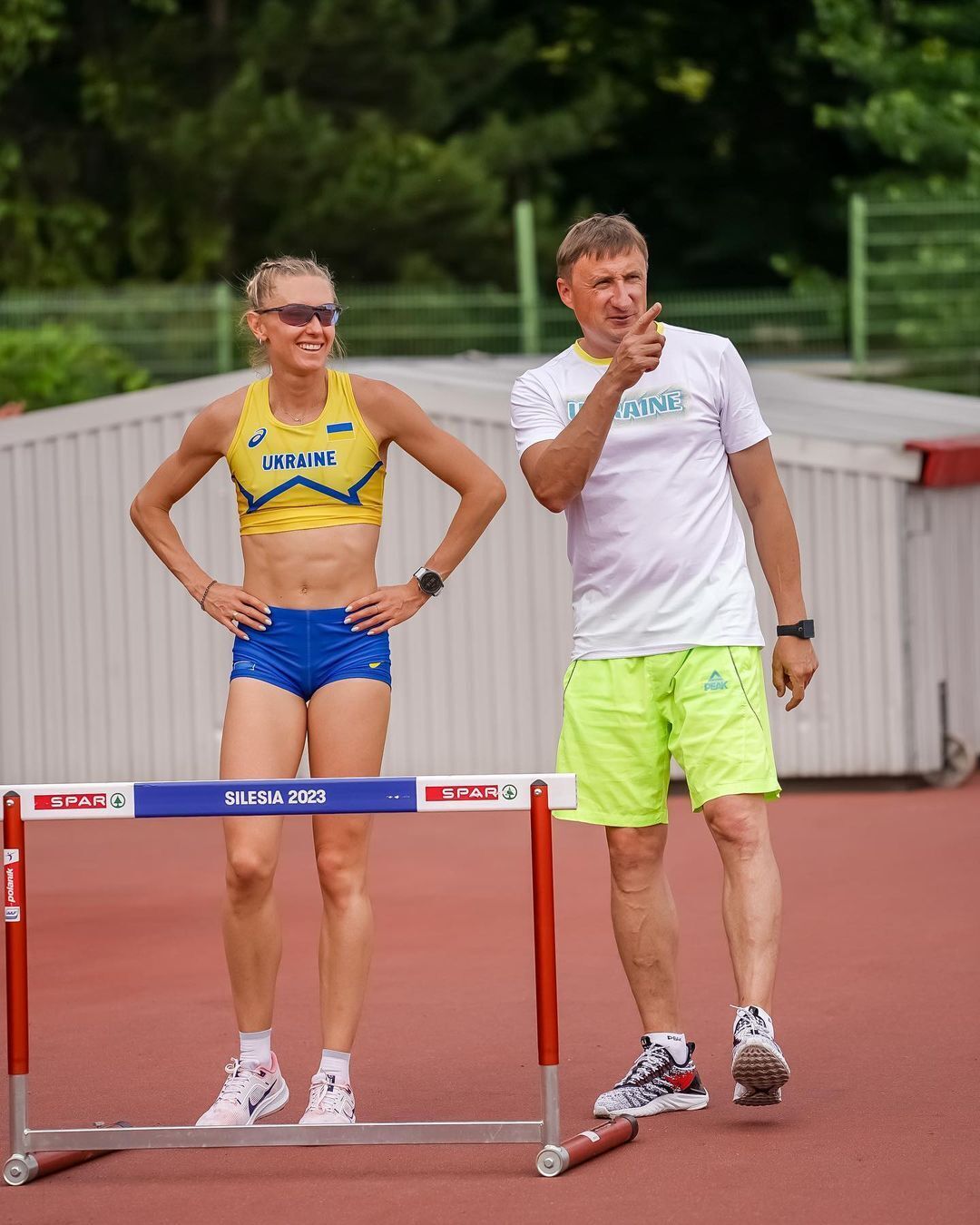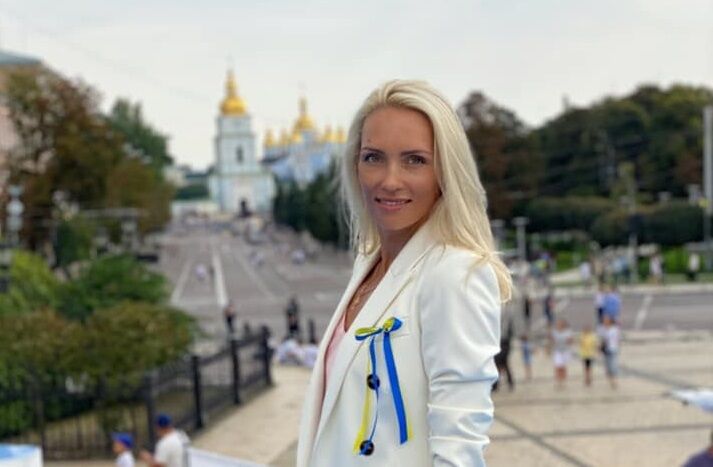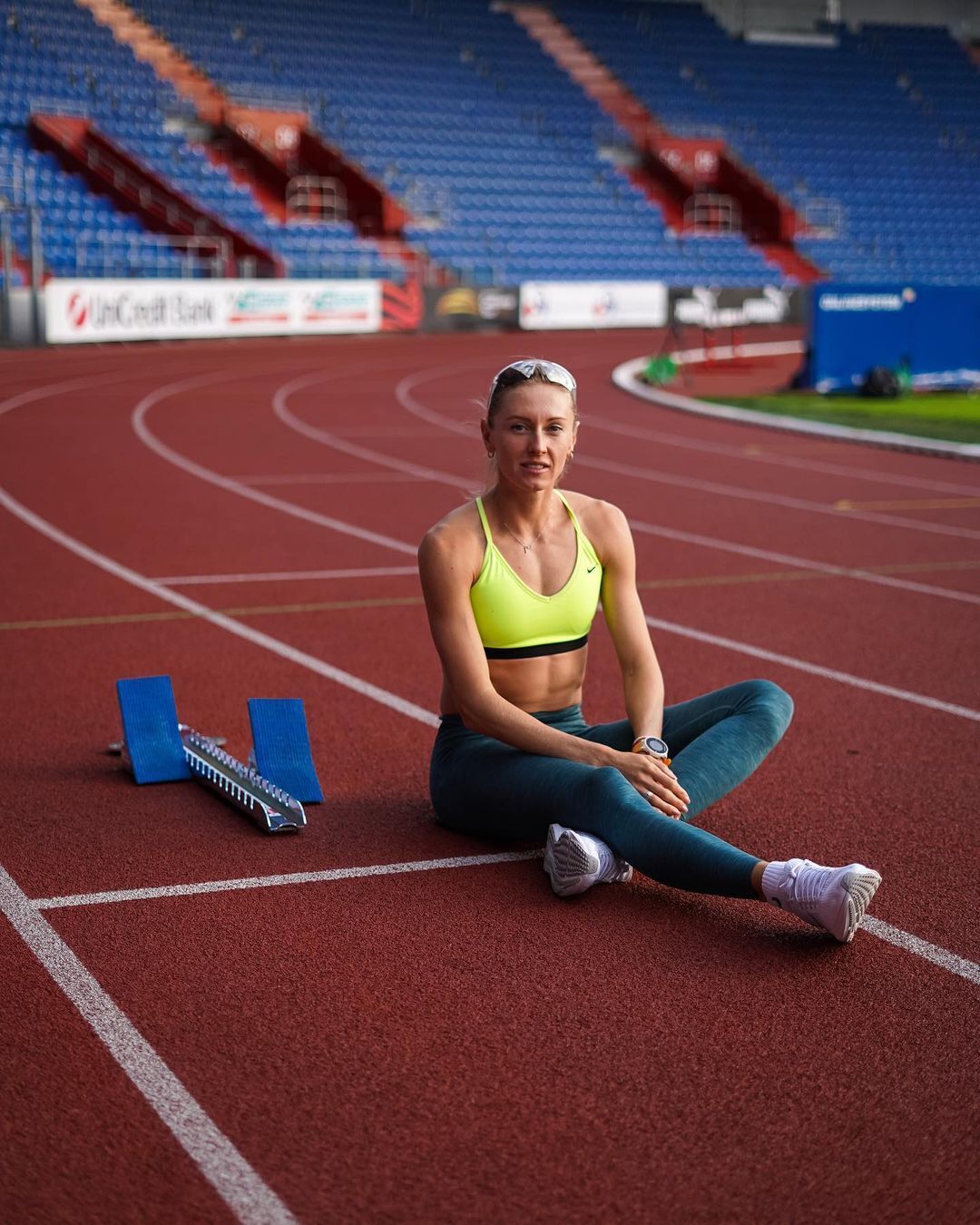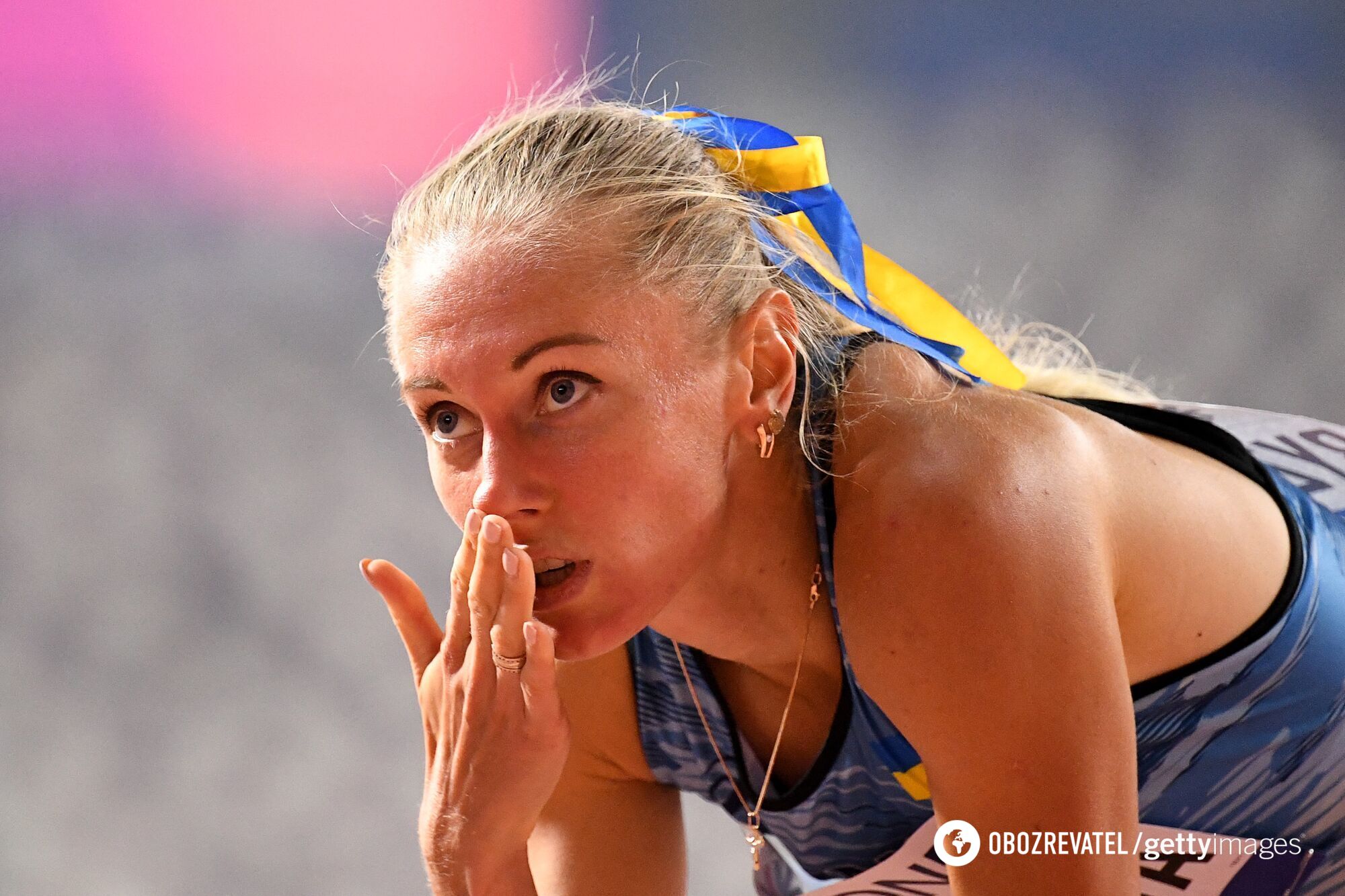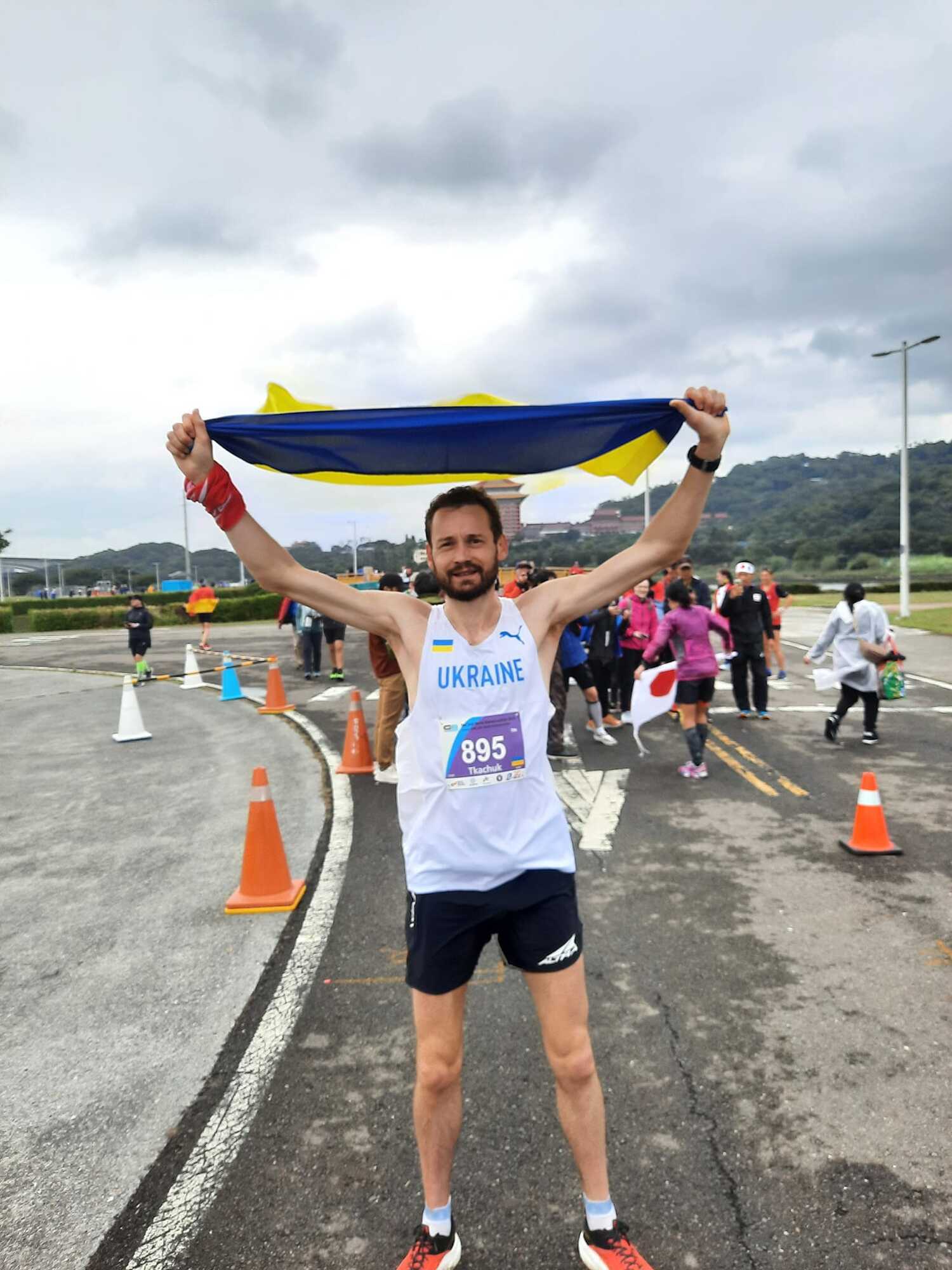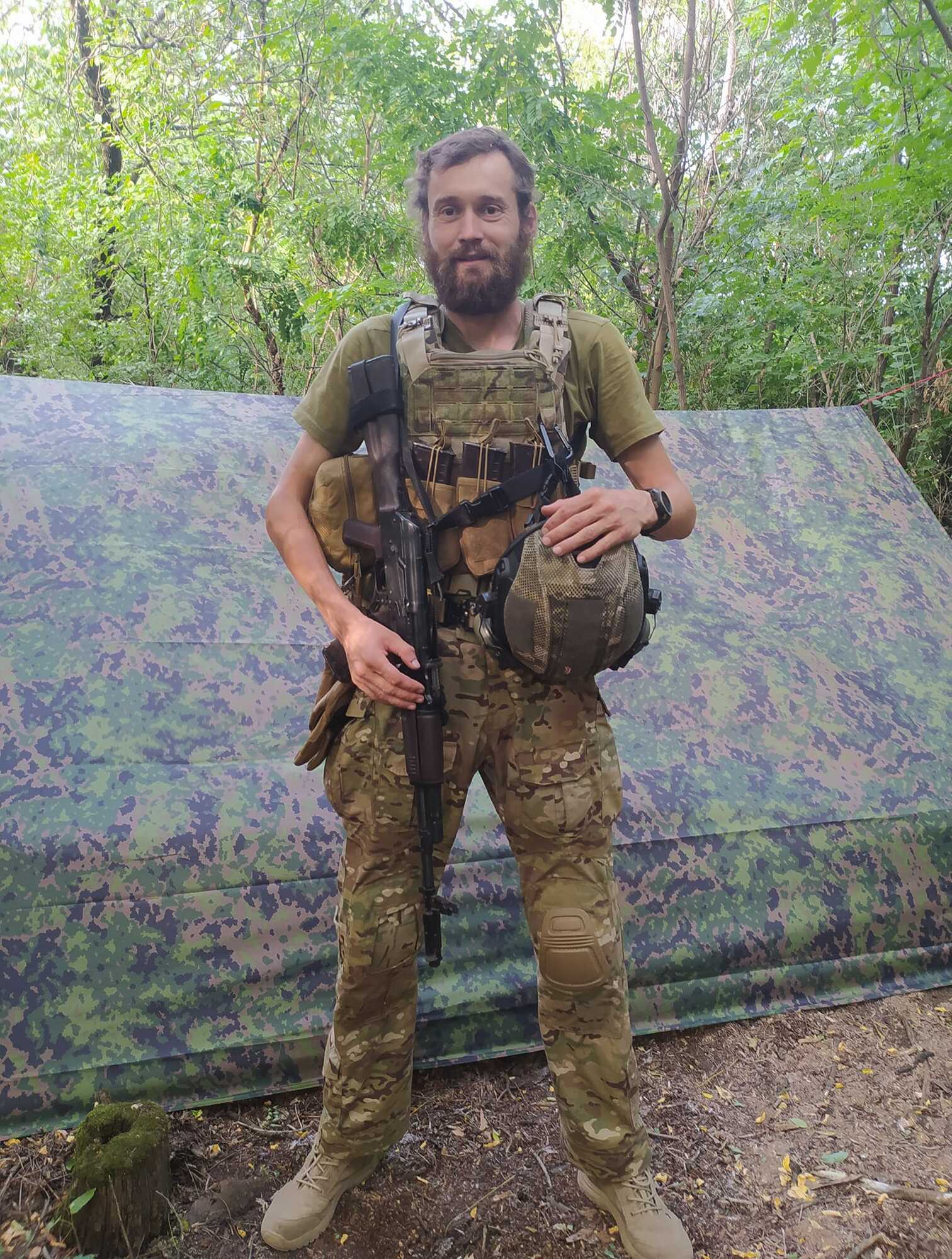Sport
"The Russians have been forgotten": why a Ukrainian athlete received a standing ovation from a stadium in Britain before the competition and how Europe was impressed by Russia
Anna Ryzhykova, a bronze medalist in the 4x400 relay at the 2012 Olympics and winner of the European 400-meter hurdles championships, was left without an award at the Paris 2024 Games, but noted the unity of modern runners who do not even think about the return of the aggressors. According to the 34-year-old from Dnipro, Russians and Belarusians have been forgotten in athletics.
In a conversation with OBOZ.UA, Anna said that after the full-scale invasion of Russia in February 2022, she works not so much to realize her dreams as to improve the country's image. And she was sincerely impressed when she received a standing ovation in the UK. Ryzhykova wanted to compete for high places in Paris 2024, but stopped at her 400-meter hurdles at the semifinal stage.
- The condition was supposedly good. And, probably, because I wanted to do it so badly, I didn't succeed. I wanted to show a good result in the semifinals, a decent result to have a chance to get to the final somewhere in terms of time, to be at least close to the season-best. But I failed to achieve my goal. I'm upset about it, but what can you do? It's hard to find an explanation, and I don't want to make excuses. It was not as if I made a mistake or did something wrong. I trapped myself with my desire.
But I made a promise not to cry, because all my starts end in tears. After all, I am such a maximalist, and not getting somewhere in the next round or "silver" is always wrong.
What's next for your career? We'll have to see. It's not customary for us to make loud statements, especially since the situation in the country is so difficult now... and in everything, and it's impossible to plan your future even a few months in advance.
I was supposed to graduate after Rio 2016, which I never went to, and I was going to graduate after Tokyo 2020. And then every year. So I'm not going to make any wishes, announcements, or promises, either about finishing or participating. We'll see how things go from here.
- Didn't you get sick, like some of the other athletes on our team at the 2024 Olympics?
- It happened before. I was ill before the European Championships. And before the Olympics, I got out of it, overcame illness and injuries, and everything was fine. But even if I had run my best time of the season in Paris, I still wouldn't have qualified for the finals, because the results were really high, the girls were great. A new generation is breaking into the hurdles, and the competition is becoming very strong.
- Can you compare this Olympics with the last one in Tokyo 2022, where you finished two steps away from the medal and took fifth?
- At the last Games I was more confident, stronger, because the season was really on a good note. The races came one after another, the results developed, I set a Ukrainian record and went to the Tokyo Olympics as the leader.
And now the season seems to have started well, then I got sick, and then we tried to correct and improve my results. Somewhere things worked out, somewhere they didn't, so there was no such confidence. As for the atmosphere, of course, it's much better in Paris, all those spectators...
The atmosphere at the Stade de France was just magical, when they all shout, support, when the names are announced, and the stands explode with applause. It was really cool. I can't compare it to Tokyo at all, when it's completely silent and I can hear the opponents breathing. I think a lot of people, our athletes, dreamed of just coming out and feeling this atmosphere, because nowhere else, even at some World or European championships, is there the energy that is here.
- You were one of the most experienced and well-known Ukrainian athletes on the Paris track. What was the interest from the foreign media and what are the most frequently asked questions now? Has anything changed over the past two years?
- I would like to be better known for my achievements and successes than for the war in Ukraine. But in fact, over the past few years, which we remember, probably starting with the 2022 World Cup, the interest of journalists in us is very high. And I have probably given interviews to all the most famous media in the world. And not the most famous ones either. Some of the last ones in France were from South Korea and Mexico.
There were reporters at the meeting with the mayor of Paris. It seems that we are known, perhaps, in all parts of the world. BBC, CNN, Associated Press, I don't know who else. There is just a huge list of these publications. And everyone asks about the war, about how we survive it, how it feels, what we need, how we work. And this has become, as it were, the main job of athletes, we have to share our experience.
We can't shut ourselves off from it. And we put our hearts and souls into it. But if in the first years I used to cry at every interview, because I was letting it all go through me, now I try to react to it all more restrained. But you still put your soul into it. Because it's about the painful, about what's happening in your country. It's not just some distant events that don't concern you. It's all happening to your family, to your friends, and it touches your soul. People die, so it's about life and death.
That's why a lot of effort goes into communicating with the media. But we realize that this is probably why we are here now. Because we are not only defending our own goals, ideas and ambitions. At previous Olympics, it was easier: you came and worked for your dream. And here, for the past few years, I've been working more for the image of the country than for the realization of my own ideas.
- I think you underestimate yourself. In Paris, you were greeted very warmly at the stadium.
- Yes, when I went out for my first race, the crowd in the stands supported me very well. In fact, when the full-scale invasion started, we all stopped our careers and thought that's it - we're not going to continue, it doesn't matter. And then people started supporting us, and we decided to come back.
And at the first competition, when I was at the Diamond League in Birmingham, when the names were announced and the stadium stood up and started applauding, I just realized that we are needed here, that we can express our thoughts through sports, talk about the war, and, of course, support the image of Ukraine in a good way. Sports diplomacy, a kind of ambassadors of Ukraine.
I never thought before that sport was so important and could be so influential and shape public opinion. Because people see us as so real, so open, they see our heart and soul, and you can't go out and pretend to be something you're not.
We are all for fair play here, everyone plays by the same rules. People see through you, what you are like, how you behave in the sector or on the tracks. And that's what shapes people's opinion - the fact that we fight there, go out and work and don't ask for any concessions for ourselves. We are at the start, and everyone is in the same conditions, everyone follows the same rules.
And the fact that we continue to fight even with our capabilities inspires respect from other people.
- Of course, we all don't want to think about those behind the curb, but has the opinion of the running community changed about the presence of aggressor countries at competitions, particularly at the Olympics?
- It seems to me that everyone in athletics has simply forgotten about them. And there is no mention of the fact that someone misses them or how they are doing. We don't talk about Russians or Belarusians. We have a very strong international community that has changed a lot over the past 12 years.
If we take my first Olympics in 2012 in London and now it's 2024, I have something to compare with - the previous generation of runners and the current one. It has changed a lot. Because the past was so evil, focused on themselves, concentrated only on their own results and affairs, and now there is a very friendly environment, everyone is very sincere, everyone shares with each other, supports each other, we communicate both before and after the races.
We are competitors only after the starting gun goes off, and after the finish we are friends again, we support each other again, and it's really cool that you can ask for advice, share something, train together, and get this support.
And when the full-scale invasion began, we could really feel the difference between Russia and Europe, which immediately provided assistance. We didn't even communicate much with anyone there, we just crossed paths at competitions and said hello, but everyone reached out, invited us to their homes, offered any help, offered to shelter their families and friends, and asked what you needed.
People were constantly writing to us, saying, "be safe," "come to our homes," and so on. And on the other hand, when they write to you from there that a missile will hit your house. Bots wrote bad things, and athletes wrote themselves.
A lot of things came at us in the first days of the full-scale invasion, when we started using social media because we thought they didn't know the truth, and we started writing and uploading videos about what was happening, that we were attacked, that we were at war, that we were afraid and hiding. And they responded, saying, "We don't believe it, you made it up, it's all your leadership and something else. Well, everyone knows how it was...
And such a powerful support came from Europe, just disinterested, sincere. Then we immediately felt this difference in humanity and mentality. And the fact that we have already been accepted and are very respected, because we position ourselves as people who respect others, play by the rules, are kind, sincere. Others know only positive things about us, because that's who we are.
- What else has happened this year that you would like to mention beyond the track?
- Now we have a team that wants to develop athletics. We've had changes in the federation, and now we're starting a very difficult path. And I want to say that if we do not take a step now to support the current leadership and the idea that they want to implement, we will never save athletics in our country. Because now is the war, now are difficult times. And there are not a lot of people who will invest their souls and their strengths unselfishly, without demanding anything in return.
We saw how great the Ukrainian championship was this year. The way it really should be when you come to the national championship and are proud of it. That this is not just some ordinary competition where everyone can get in. It's a real event, and it's very cool that you become a star and a leader of the country.
We have few people who come to sports. And we need the support of others to get them interested, to instill a love of sports in their children, grandchildren, and family. And we, the athletes, are doing it.
During the Olympics, I received a million messages from people I had met somewhere in my life. Maybe even by accident: my English tutors, the wives of my husband's friends, acquaintances from university or school, their friends - they watched the Olympics together. And they are interested in sports. This is how we expand this influence. And maybe they will send their children to sports as well. Because they see what results we show, what a cool life we have. What we can do. Sport opens up a lot of opportunities. And those who develop both in sports and in life are successful.
For our sport to survive, for our country to survive, we really have to all unite. And everyone has to put their heart and soul into what they do. Everyone has to do their best in their field. This is what we are doing in athletics now. And I want us not to miss this chance. I want us to support our FLAU president and our leaders. And they may make mistakes. But the one who does nothing is not wrong.
- Unfortunately, many of our athletes were forced to leave the sport and defend the country. Do you keep in touch with anyone, do you donate to them?
- Yes, our Instagram is very developed now, I follow my friends, and if someone needs help, they put up a verified collection, so we definitely support each other. We also donate there. And if I set up a verified collection, my friends and family will also donate. We try to help each other.
There are a lot of athletes and representatives of other sports fighting now. For example, we have Dmytro Demianiuk and his wife Orysia. She volunteers and does a lot of things - she organizes training camps and runs. I don't even know how she does it all. And she carries it all on her shoulders. That's why we have such a sports community, which is really worth a lot now. And we support each other if someone gets into trouble.
When the full-scale invasion began, everyone rallied very strongly, sheltered each other, helped at any time. And now it continues. And it will be the same until the end, until our victory.
Earlier, OBOZ.UA told how Ukrainian champion Maguchikh was called to marry, who her lover is and why the wedding is postponed.
Only verified information is available on the OBOZ.UA Telegram channel and Viber. Do not fall for fakes!


